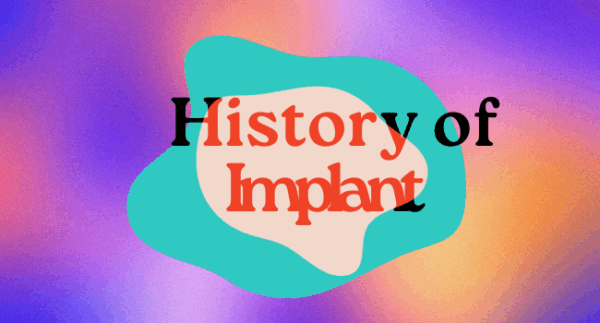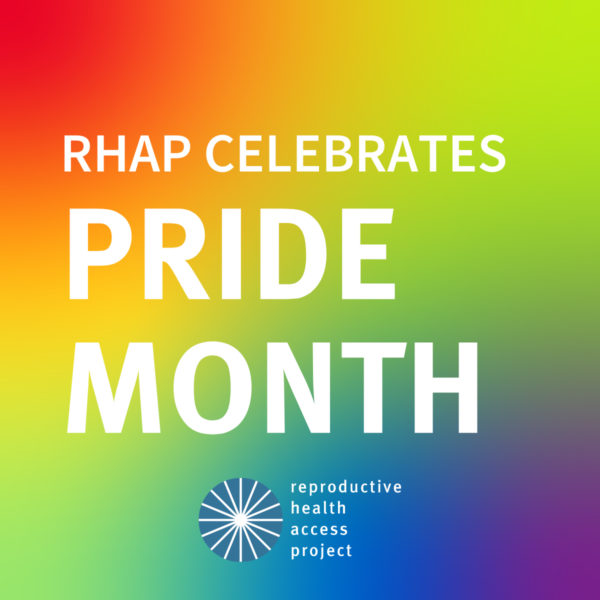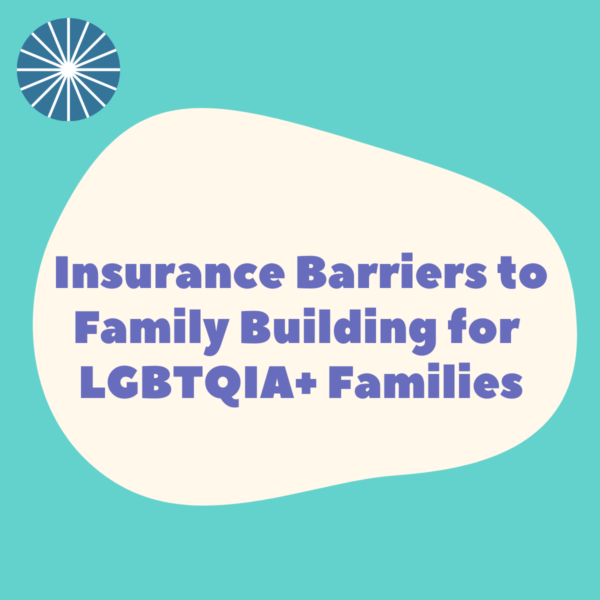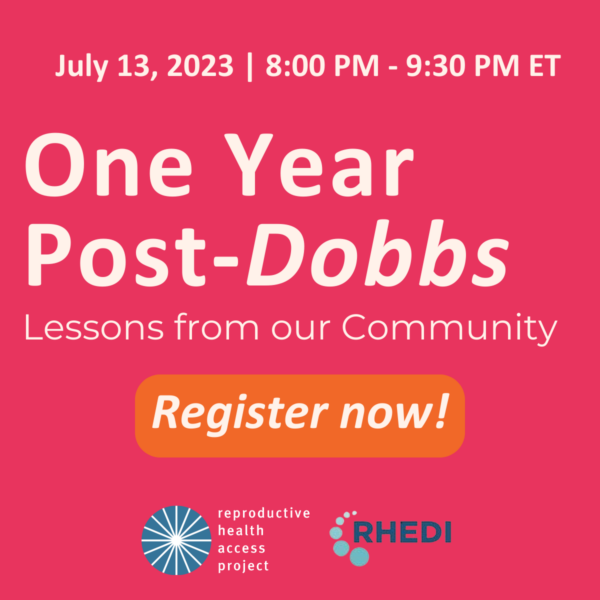Aug 14

Help Us Protect Access to Sexual and Reproductive Health Care Today!

This June, RHAP is celebrating our LGBTQIA+ community through advocacy and working to expand access to sexual and reproductive health care access for everyone. Across the country, hateful politicians are enacting restrictive and total bans on abortion, which also deeply impacts LGBTQIA people. In fact, as many as 16% of abortion patients do not identify as heterosexual women. Abortion is not just a “woman’s issue,” which is why we are intentional in the training and resources we provide, the language we use, and the voices we center in our work.
Beyond abortion bans, legislation has now been enacted banning gender-affirming care for trans people, specifically young people. As of June 1st, 30.9% of transgender youth live in states that have passed bans on gender affirming care. Transgender youth need and deserve access to health care that affirms their identity and encourages them to grow up in a safe and loving environment. We know that gender affirming care saves lives, and that access to this care, and clinicians who know how to provide this care, is crucial.
These attacks on the life saving, critical health care are not isolated incidents, but part of a bigger attack on our LGBTQIA+ friends, family, and community and their ability to live their lives free from harm. RHAP is steadfastly committed to making sure that everyone, no matter their identity, income, or location, can access the sexual and reproductive health care they need.
The pillars of reproductive justice contain the right to have children, to not have children, and to parent those children in safe and healthy environments. Without access to sexual and reproductive autonomy and decision making, we cannot achieve reproductive justice, especially for LGBTQIA+ people.
 LGBTQIA+ communities experience many well-documented health inequities asa result of various systemic barriers. Currently, language utilized in state and health insurance policies, as well as the medicalized, dominant narrative on the definition of fertility, result in sizable structural and financial barriers for those looking to become pregnant through reproductive technologies.
LGBTQIA+ communities experience many well-documented health inequities asa result of various systemic barriers. Currently, language utilized in state and health insurance policies, as well as the medicalized, dominant narrative on the definition of fertility, result in sizable structural and financial barriers for those looking to become pregnant through reproductive technologies.
Since the federal legalization of same sex marriage in 2015, there has been an increase in LGBTQIA+ couples looking to build their families. These couples are often denied health insurance coverage for basic reproductive technologies such as intrauterine insemination, due to the heteronormative language and beliefs embedded in state and insurance policies. Updating the language used in policies that mandate infertility coverage to be inclusive of individuals and/or couples experiencing would greatly reduce a major barrier to LGBTQIA+ family building.
The Institute of Medicine argues that health disparities faced by LGBTQIA+ families are a result of bias, stigma, and discrimination, and not as a result of biological or genetic factors. One contributor to this is a lack of comprehensive, medically accurate LGBTQIA+ inclusive sex education in the US education system – only 6 states and the District of Columbia require it, while 7 states restrict it. The amount of LGBTQIA+-focused education medical students receive varies, but the median has been found to be just five hours. Policies that mandate positive and inclusive LGBTQIA+ education in schools can increase self and peer acceptance of one’s LGBTQIA+ status, raise awareness, and combat stigma, resulting in more inclusive healthcare environments and better outcomes for LGBTQIA+ patients.

June 24, 2023 marks the anniversary of the decision in Dobbs vs. Jackson Women’s Health Organization, in which the Supreme Court held that the Constitution of the United States does not confer the right to abortion.The court’s decision overruled both Roe v. Wade and Planned Parenthood v. Casey, deferring the power to regulate any aspect of abortion not protected by federal law to individual states.
This decision, while not unexpected, dealt a massive blow to abortion access for millions of people across the country and deeply impacted our clinical community’s ability to provide comprehensive reproductive health care. A year later, the legal landscape of abortion access continues to change and varies widely by state. To reflect on this year of challenges, RHAP and RHEDI will host a panel, “A year post-Dobbs: Lessons from our Community,” on Thursday, July 13th, from 8 to 9:30 PM.
A year post-Dobbs: Lessons from our Community
Date:
July 13th, 2023, at 8:00 PM

Your gift allows us to train and support health care providers across the United States so they can offer patients compassionate and comprehensive care.
Aug 14
